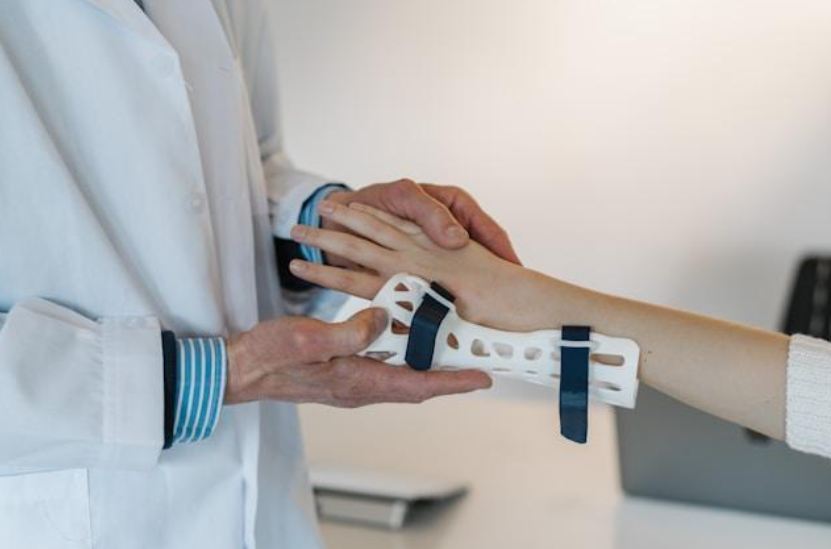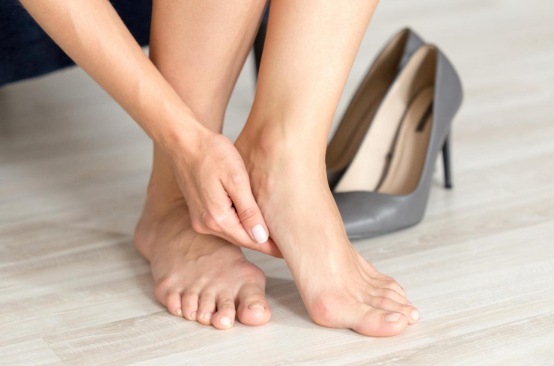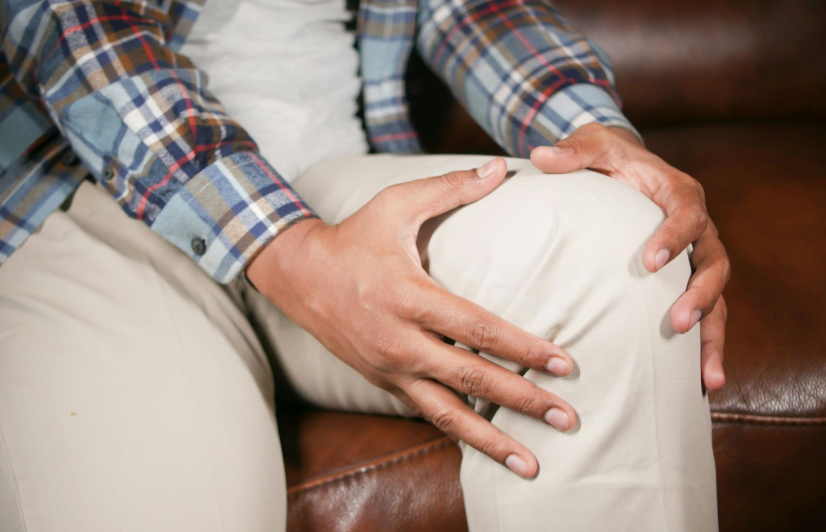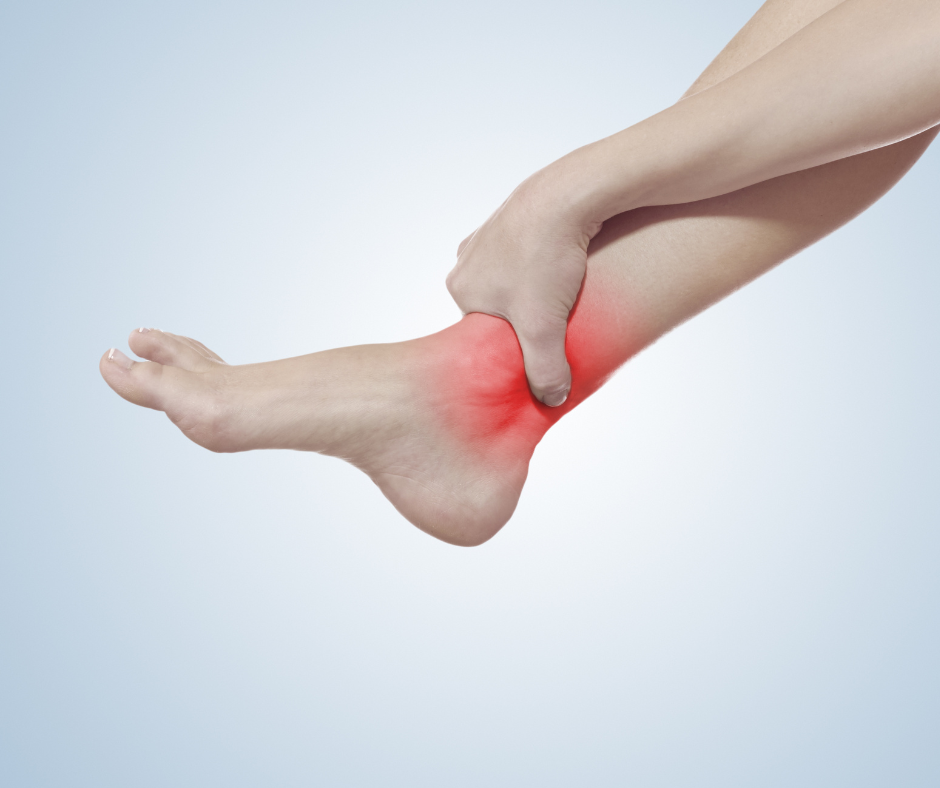A COMPLETE GUIDE TO HIP TENDONITIS
A Complete Guide to Hip Tendonitis

Tendons are thick elastic bands of fibrous tissue that connect muscles to bones. When tendons become inflamed due to repetitive movements, stress, or repeated injuries it can result in tendonitis. Tendonitis commonly affects joints such as shoulders, elbows, wrists, knees, heels, and hips.
Read on as we delve further into hip tendonitis and the causes, symptoms, and risk factors of hip tendonitis. Understanding these aspects will help you seek appropriate medical attention when needed.
What Causes Hip Tendonitis?
There could be many causes of hip pain, from arthritis to dislocations. One of these pain causes develops from overuse injuries if you make the same movements for long periods. Hip tendonitis, also known as hip flexor tendonitis, usually happens when the tendon that holds the muscle that flexes the hip is overused or strained.
When the muscles surrounding the hip joint are excessively used or strained, they can pull on the tendons attached to the bone, leading to irritation and inflammation. This can happen in athletes and individuals who engage in activities that require repetitive hip movements, such as running, cycling, ballet dancing, and swimming.
Although this condition is mostly developed as a result of excessive exercise, certain underlying health conditions may contribute to the development of hip tendonitis. For instance, individuals with diabetes, infection, or rheumatoid arthritis may be more susceptible to tendon inflammation.
What Are Hip Tendonitis Symptoms?
When people have hip tendonitis, they commonly experience pain, tenderness, and mild swelling near the hip joint. If it is not properly treated, hip tendonitis can become bursitis—inflammation of the fluid-filled sacs in the joints—causing chronic hip pain.
It's worth noting that hip tendonitis can also indicate the presence of other health problems such as diabetes, infection, or rheumatoid arthritis.
How to Diagnose Hip Tendonitis
Your doctor or healthcare provider will assess your condition and develop a customized treatment plan for your case. Here are some of the basic steps during a hip tendonitis diagnosis.
Medical Assessment
During your appointment, the specialist will conduct a thorough evaluation, discussing your symptoms, medical history, and any recent activities or injuries that could have caused or contributed to the problem.
Imaging Tests
In some cases, imaging tests like X-rays or MRI scans may be ordered. These tests can help visualize the hip joint and surrounding structures, providing valuable information about any structural abnormalities, inflammation, or damage.
Physical Examination
Your doctor will perform a physical examination of your hip to assess for tenderness, swelling, and limitations in range of motion. They may also use specific tests to evaluate the strength and flexibility of the hip muscles and tendons.
Treatment Plan
Your doctor will develop a personalized treatment plan tailored to your specific case. Unless you have a severe injury that requires urgent surgery, conservative or minimally-invasive treatments are often effective in resolving hip pain.
How Hip Tendonitis Is Treated
In the majority of cases, hip tendonitis can be effectively treated without the need for urgent surgery. Here are some common treatment options for hip tendonitis.
RICE Treatment
If diagnosed early, hip tendonitis treatment may only include having adequate rest, applying ice packs and compression, as well as elevating the injured area allowing the inflamed tendons to heal. Thus, this classic treatment is known by the acronym RICE—rest, ice, compression, and elevation.
Physical Therapy
A key component of hip tendonitis treatment is physical therapy. A skilled physical therapist will guide you through exercises and stretches to decrease pain and reduce inflammation They may also use techniques to strengthen the hip muscles, improve flexibility, and regain range of motion in the affected area.
Medication
Nonsteroidal anti-inflammatory drugs (NSAIDs) like ibuprofen or naproxen can help relieve pain and reduce inflammation in the hip. Your doctor may prescribe these medications for a short period to manage discomfort during the healing process.
There are also joint injections and other innovative alternatives like Iovera or cryo-analgesia to provide temporary pain relief by freezing the nerves around the hip joint.
In some cases, corticosteroid injections may be administered directly into the joint to reduce persistent or severe inflammation and pain.
Surgery
If conservative treatments do not provide sufficient relief and surgical intervention is required, your surgeon will tell you about your hip surgery options and advise you on the best one for your condition.
How Can You Prevent Hip Tendonitis
To minimize the risk of developing hip tendonitis, incorporating preventive measures into your routine can be highly beneficial. Here are some suggestions to reduce your chances of experiencing hip tendonitis.
Stretch and Warm Up
After engaging in physical activity, take the time to properly stretch your hip muscles. Gentle stretching can help improve joint movement, enhance flexibility, and reduce the strain on the tendons.
Avoid Repetitive Motion
Try to avoid excessive or prolonged activities that put repetitive stress on your hip tendons. If you participate in activities that involve repetitive hip movements, consider incorporating rest days into your routine to allow your tendons to recover and reduce the risk of overuse injuries.
Improve Your Technique
When participating in sports or exercises, ensure that you learn and practice proper technique. This is especially important for activities that involve repetitive hip movements.
If you are experiencing hip pain, don't wait until it becomes unbearable. At AZ Ortho you can receive a proper diagnosis and develop a personalized treatment plan including physical therapy, activity modification, medication, iovera® cryo-analgesia, and joint injections. With our experienced team of orthopedic specialists, we can help you regain strength and movement in your hip. Schedule an appointment to get started.










